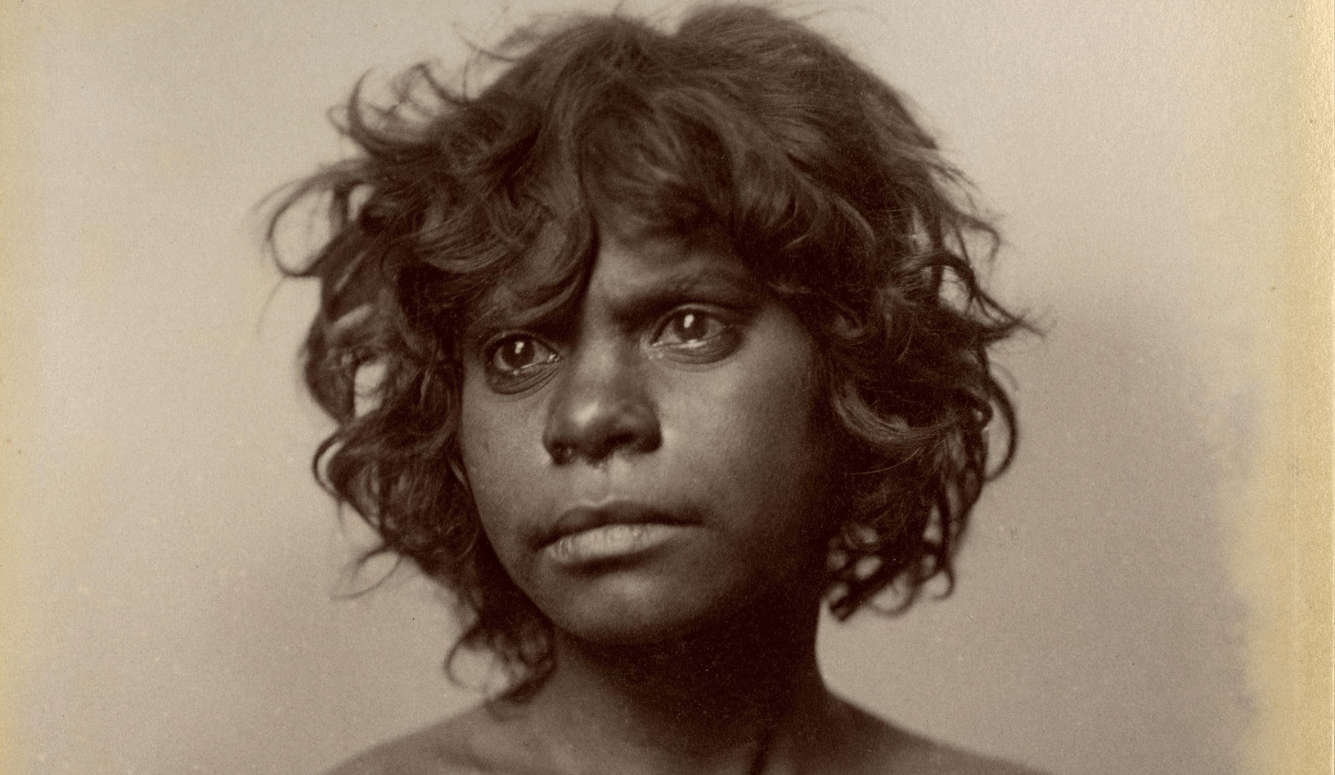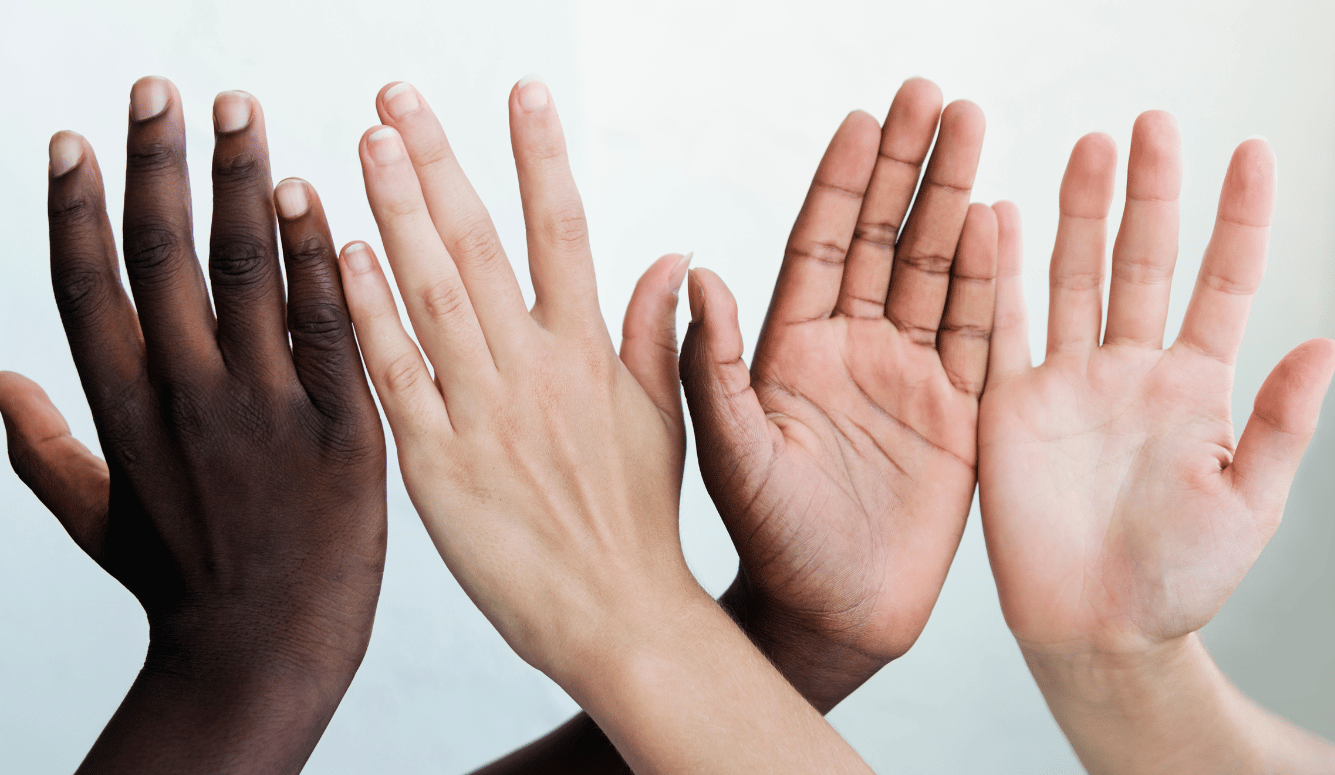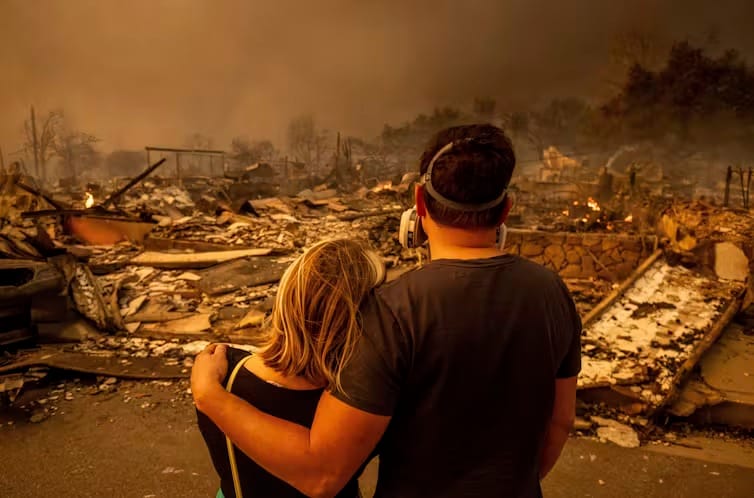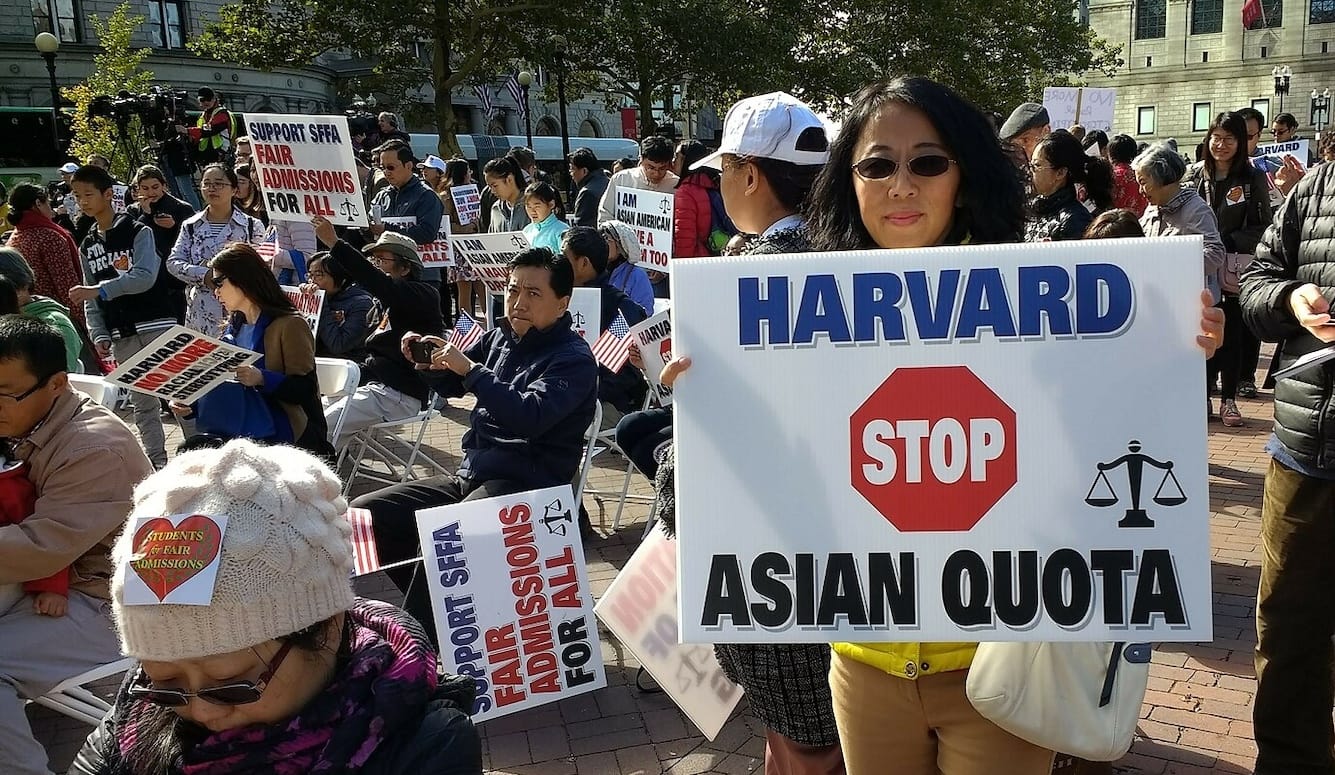Sarah Haider on Normalizing Dissent: A Conversation
The effects of that particular stance – it’s not so visible how harmful it can be. But you’re lying about the reality of hundreds of millions of people across the world.
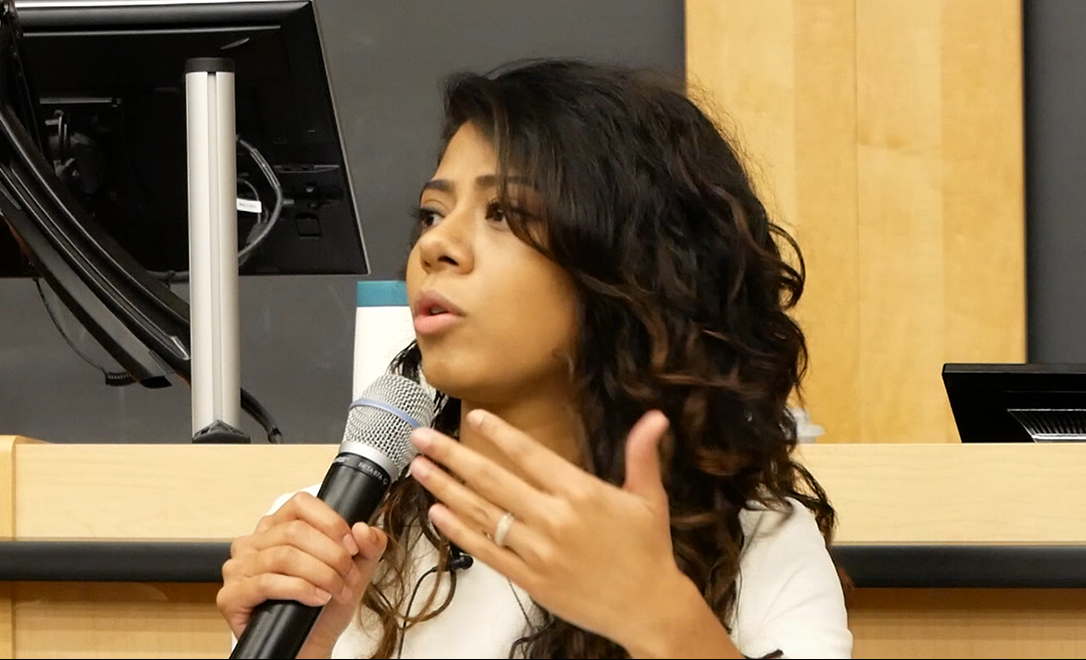
After a couple of false starts, Ex-Muslims of North America (EXMNA) finally kicked off its Normalizing Dissent Tour at the University of Colorado Boulder. On the evening of Thursday, October 5, more than 90 people assembled to hear a panel of three Ex-Muslim women – EXMNA co-founder Sarah Haider, Saudi activist Ghada, and writer and editor Hiba Krisht – discuss “Islam, Modesty, and Feminism.” At the request of Secular Students and Skeptics Society (SSaSS), the student organization that invited EXMNA, campus security took the unusual precaution of searching all bags for weapons as the audience filed into the lecture hall where the event took place.
Fortunately the event, which included an hour-long Q&A, proceeded civilly. Krisht, who was raised as a Shi’a Muslim in Hezbollah-controlled Lebanon, said in her opening statement: “I felt I was lying with every movement, lying with what I was wearing, lying with my actions because I would pray in front of them [her family] even though I didn’t believe in God.” Ghada described an upbringing nearly as harsh. When as a girl she complained that the black clothing engulfing her body was too hot, her mother told her that hell was hotter. Haider, who was born in Pakistan and raised in Texas by more liberal parents, spoke of her struggle with feelings of isolation when she came to doubt the religion she had been raised to accept.
The following morning I spoke with Haider for about an hour. Part of our conversation is reproduced below.
Spencer Case: So this panel discussion I witnessed last night was part of the EXMNA Normalizing Dissent Tour. Could you tell me now what is meant by “normalizing dissent?” What is the goal of the tour?
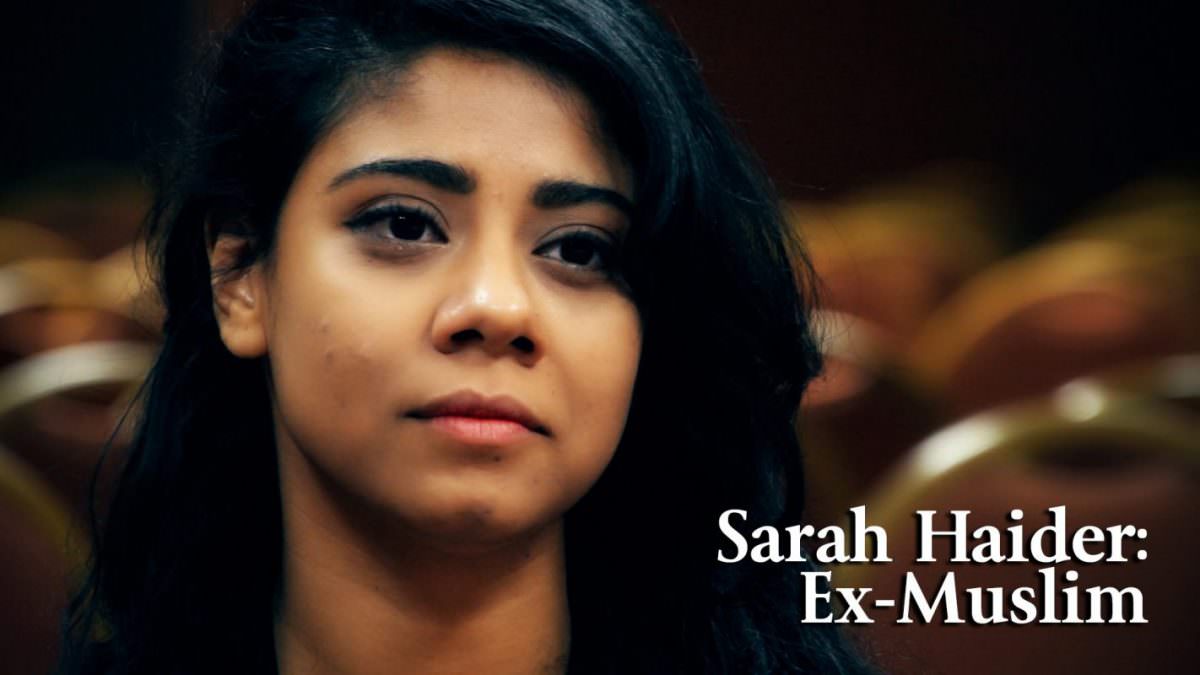
Sarah Haider: In the Muslim community the idea that dissent should be something that is tolerated, much less celebrated, is just so unheard of [that] it is difficult for progressives of all stripes, anyone who is trying to change things, to have any kind of support in the community. So what we wanted was to show that it’s okay to step away from Islamic traditions, and to seek out different ways of life using secular morality and rationality. What we wanted to do with this tour was bring as much nuance to the conversation about Islam as we can. Every event we will cover a slightly different topic, a slightly different take on how Islam is challenging a variety of aspects of our society. So the idea is [that] we as Ex-Muslims can bring in a perspective that is not common. We can bring in a perspective that is empathetic to Muslims, and [that] understands that they are just humans – but with maybe with just a few bad ideas. We also understand very intimately that there is a possibility of change and growth in Muslim communities and we’d like to see that fostered.
SC: And last night’s event focused on women and women’s issues. So in light of those goals that you just described, how do you feel like last night – which was really the first event of this tour to actually happen [two earlier events had been scheduled, but one was cancelled, and the other postponed, due to difficulties coordinating with the universities] – how do you feel like it went?
SH: I thought it went really well, actually. You know with these things there are so many things that can go wrong. We were concerned about disruptions. We were also concerned that the school might do something to pull out of the event at the last second because of security concerns. To mitigate some of those potential issues we had an alternative venue booked and extra police officers reserved. So we had that ready to go just in case something happened with the school. So that was my main concern, that it just wouldn’t happen. But it looks like everything went smoothly.
SC: Well I’d like to get your sense of what the audience reaction was. I obviously was facing you and your co-panelists and you were facing the audience and then you had a chance to speak with some of them afterwards. So I was wondering what your sense was about how this was being perceived by the audience.
SH: Generally speaking, it’s hard to tell. But many people were very friendly and I could tell that there were aspects of particularly Hiba’s story and Ghada’s story that moved them. I could see it in their faces as they were reacting to certain parts of what Hiba and Ghada were saying. There were a few people who were a little more passive and I could tell this wasn’t really their cup of tea. But I’m glad they were there. I noticed that there was at least one hijabi [Islamic headscarf wearing] woman in the audience. There might have been more Muslims in the audience as well—
SC: Yeah, I had actually taken an Arabic class with her a few years ago. I don’t remember her name, but I was glad to see her there.
SH: Yeah, yeah I love that. I love that she was there. And she was not disruptive she was just listening the whole time. I hope that these perspectives were interesting to her and provoked some thought. Or at the very least humanized ex-Muslims at little bit, that’s important too. So I was pretty happy with the way I felt that the audience was receiving it.
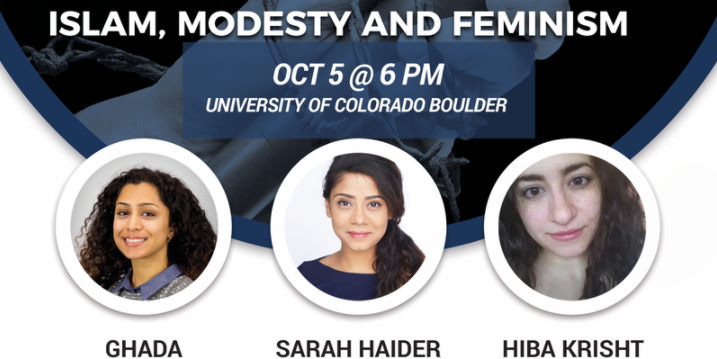
SC: Alright, I wanted to ask you about this. So EXMNA often uses this sort of “middle path” kind of rhetoric, like there’s anti-Muslim bigotry on the Right and cultural relativism on the Left. There’s something from one of your pamphlets that says something like that. I heard you say this. I think all of the panelists said something like this. And so I was curious because when you put it in a parity like that it suggests that these are equal problems, that demonization of Islam and glorification of Islam are equally problems. And I’m wondering whether that’s actually your view or whether you think one of these is more false or more harmful than the other.
SH: That’s an interesting question. I wouldn’t say that they are both harmful in the same ways. As far as judging on a broader level whether they are equal harms, that would be a difficult task. I can say that I think the Left’s position is more deeply troubling in the way they just seem to ignore the problems within Islam or glorify certain aspects of it like the hijab. The effects of that particular stance – it’s not so visible how harmful it can be. But you’re lying about the reality of hundreds of millions of people across the world. It’s so easy to just focus only on Muslims in the West and say “Oh, well they are facing bigotry here.” But this is just the West, this is a tiny minority. When we’re looking at Islam, it’s a global phenomenon. And when you say that the most pressing concern is the bigotry [against the] actually very privileged people who are already in the West, then you’re implying that the people who most need our help, who most need things to improve, should be discounted at the moment, that their problems are not the most pressing problems.
SC: I guess what I wanted to do then is ask you about what the Left and what the Right is doing wrong independently. So about the Left… I’m sort of amazed at the extent to which people on the Left want to project things onto Islam. They want to be open-minded and tolerant and yet they don’t really want to see that anything is actually different than what they believe and accept. I think nothing highlights this quite so much as the hijab and the pussy hat – like a traditional symbol of submission and modesty and this thing that was invented for the Women’s March, I guess – that’s symbolically putting your vagina on your head. It just seems like: how could anyone think these two things are compatible? This is like an achievement in cognitive dissonance.
SH: Well, it’s interesting to think about the way in which tolerance is justified. For I think too much of the Left, tolerance seems to be something that we give to people who already hold views we find acceptable, right? That’s why there’s this effort to sanitize Islamic traditions and to sanitize Islamic practices, because those are the grounds on which we can grant other people tolerance. But I think of tolerance as a civil liberties principle, particularly as it pertains to things like freedom of speech, it has to be granted to people we that disagree with as well, right? It has to be granted to people whose ideas we find repulsive. But broadly among the Left, I’ve noticed this trend of – and it’s all over the news, the punching Nazis thing – but broadly there’s this trend of not accepting civil liberties, and not accepting the idea that anyone can practice the way that they [want], or hold the ideologies that they feel most reflect reality, because they might be bigoted. Or they might be perceived as being harmful.
So it’s interesting to see how civil liberties are being eroded, because it puts us in this position where tolerance is held hostage to our judgments of someone else. And so in order for me to be tolerant of your practice, I have to find it morally good as well. Which is just a nonsense way, I think, of approaching civil liberties…. I wonder if I’m phrasing this right, because what I mean to say is that tolerance from a civil liberties perspective is incredibly important and I think that aspect is just being washed away…
SC: So the thought would be, to sort of crystalize what you are saying: tolerance has been equated with endorsement and if it were to be the case that there are some things that Muslims believe that we don’t endorse, it would follow on that understanding of tolerance that we can’t tolerate them. And so the solution is just to say, “No, it can’t be the case that we disagree on these fundamental questions.”
SH: Right. The solution is to lie. If that understanding of tolerance is the one we’re going along with, then the solution is to pretend like minority communities, or any kind of communities that we want to protect, don’t have any problematic ideas. Thank you for crystalizing it in that way that was a really good way of putting it…. But it’s something that’s quite frightening to me because I see it as the first step to have a healthy civil society is to understand that we may have a lot of differences and that while I might find your views repugnant, you still have a certain rights. This idea, it feels like is just disintegrating. And instead, yeah you have this idea that tolerance equals endorsement, which leads us to this place where we have to be dishonest, about what we see within Muslim communities because that’s the only way we can protect them from harm.
SC: So, let’s talk now about the problems on the Right, the other extreme it sounds like EXMNA wants to avoid. And I’ve heard you make this distinction where you reject this word “Islamophobia” but then you use the word anti-Muslim “bigotry” and so I wanted to hear you talk about why you think that terminological distinction is important.
SH: The most harmful aspect of Islamophobia is that it does not distinguish between criticism of the faith and bigotry against people. The way that I define bigotry against Muslims would be to say that Muslims, by virtue of being Muslims, are tied down to certain behaviors and traditions. And you see this quite frequently on the Right. And in fact that’s the kind of hate that I get, too. I’ll get comments on my Facebook page, on Twitter from time to time, where people, these right-wing bigots, will say that I can’t be trusted because I used to be Muslim, and Muslims can’t be trusted, and there’s no such thing as someone who leaves Islam.
SC: Don’t you think that part of that might have to do with people that are fakes, who claim to be moderate when they’re not really moderate? And that gets these people in this defensive crouch where they…so don’t want to be fooled by somebody who’s an apologist or something like that they are especially defensive, and too much so.
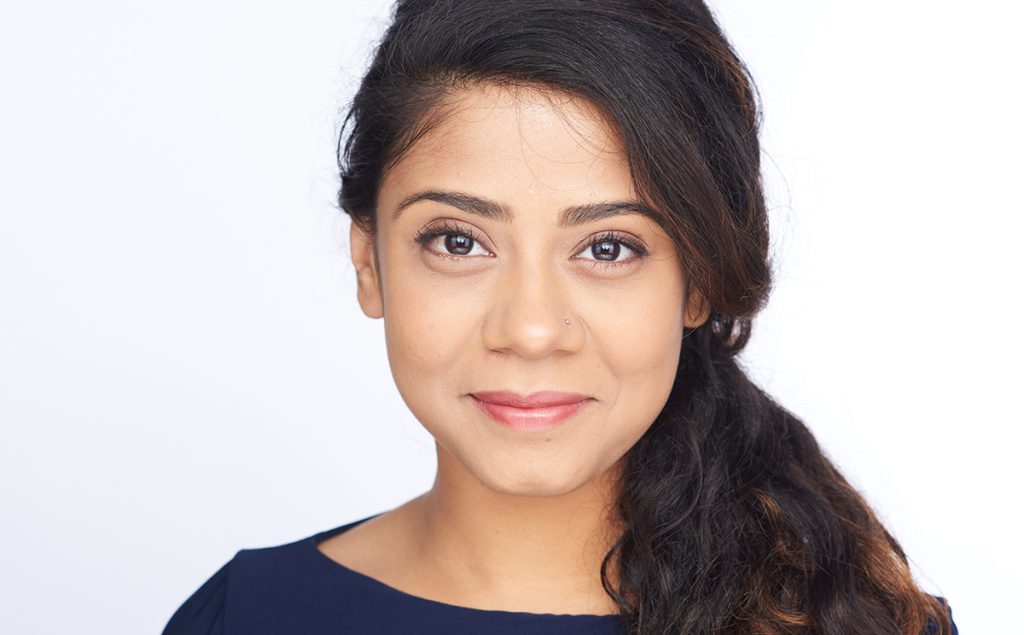
SH: Perhaps, but I don’t think so. I don’t think that’s the main motivation of it. This especially happens – I guess to your point – this does tend to happen when I am defensive of Muslims in a specific way. For example, I’ve taken very public stances against the banning of the hijab and even the face veil when a ski mask would not be banned. And in response, I’ve received a lot of hate from people who have said that “well, actually you’re lying about being an ex-Muslim, you still have sympathies towards Muslims, and we can’t trust you.” When in fact this is me trying to apply the principles that I hold in an equal manner to Muslims as well….
Hiba mentioned last night that she didn’t think bigotry was as big of a problem as the harms of Islam as a whole, and I agree with her. Of course bigotry is terrible and the worst thing about it, in my opinion, is that it makes it very difficult for Muslims to feel like they are a part of this society and to feel…like they are part of the melting pot…. Because I remember when I was Muslim, and I remember the few times I was called slurs. I’d just be walking down the street and somebody would say something. It was a rare occurrence, but it did happen, and it was definitely something that startled me and stayed with me for weeks and months. It’s one of those things that’s not bearing down on you all day every day, but when it happens it’s so shocking that it leaves a mark, it leaves a stain. Having said that, the bigotry I faced just pales in comparison to my experiences within Islam, and the variety of harms that I experienced while I was religious …. And the idea that Muslims might be targeted, Muslims might be treated worse or with increased hostility by right-wingers – due to us acknowledging truths – is just a non-starter and it’s making the dialogue so much more difficult.
SC: This is another thing I left [the event] thinking about, and I want to know your thoughts on this. So, one thing that seemed to me absent from Ghada’s or Hiba’s remarks…was any sense that the United States was liberating. You sort of got this implicitly from the fact that this is where they were able to take off the hijab and all of that. But I was kind of hoping to hear “No, this is a culture that affirms that women have freedom, and we’re not perfect; nonetheless I have some sense of gratitude for this society.” And here’s why I think this maybe matters. Because I feel like people generally want to have extended identities, larger collectives to which they belong, and identities that they can be proud of. And so, jihadists, they don’t have any trouble being proud of their culture, of their extended identity. But it seems to me that people who live in freer and more enlightened societies…they have a tendency to be embarrassed by their culture or their nationality, or crediting those things for anything, because it seems like that’s just complacency. And I worry that this gives an advantage to the extremists, because I feel like confident identities are more likely to attract supporters than ones that are apologetic.
SH: So…it may have been that we just didn’t get to it in the short amount of time that we did have on the panel. I don’t want to speak for them and say I know for a fact that they do feel proud or don’t feel proud. I know how I feel. I have heard this phrase, I think from a Muslim feminist actually, that she was a different nationality by birth but American by choice. And I loved this. And I’ve been using it ever since to describe myself, which is to say that I am Pakistani by birth but American by choice. And it’s not just that my parents happened to come here, but that I would have chosen this country above any other country – even in the West. There’s something about the way we approach freedom that is so unique, particularly the First Amendment. Our country is imperfect, but it is worth perfecting. It’s worth reaching the goals that we aspire to.
I studied political science – government was technically the major – but I studied it because of how interesting and thoughtful I found the American legal system, particularly the Constitution and the Bill of Rights. I mean, coming from a Pakistani context especially it was just mind-blowing to me that the Bill of Rights was something people thought of hundreds of years ago, and they enshrined into law. And there are still countries all across the world where the basic principle of freedom of speech is not only not accepted, [but] they actively see it as a threat to the well-being of their societies.
So I agreed with what you were saying, that we do need to be proud of America, and we need to be more vocal about the ways in which the West gets things right. And there’s a sense – and I think it’s rooted in just this fear of feeling so superior that we again have imperialist notions over the world – I think that that sense is there and it comes from a good place but it can be very harmful to society if we don’t also acknowledge the many ways in which the West gets things right…. This is the only kind of society where someone like me, a South Asian woman, can achieve what I have [achieved]. I speak out, I speak my mind. People listen to me. People give me platforms. This wouldn’t have happened anywhere in the Muslim world. This wouldn’t have happened in many other parts of the world, either. It’s happening here. And so there’s something that the West is getting right – consistently – and we need to acknowledge it and celebrate it and not be afraid to try to persuade others across the world to share those values. I think you might have heard that there’s this idea that to do so would be “culturally imperialist.” Have you heard that?
SC: Yes.
SH: It’s such nonsense to me. And it’s insulting. Because it’s the idea that this kind of progress… can only be achieved in the West, or desired by Westerners…. And I hear this a lot in terms of the hijab. So there’ll be Western women who will say “Well, I wouldn’t wear the hijab, I would feel horribly oppressed by it, but I can understand in their context, in their culture, it’s not oppressive.” I think this is a terrible argument. And I think it’s kind of a racist argument, to say: “Well, I wouldn’t want this for me, and I also wouldn’t want this for my daughter, or for my friends –
SC: “…but it’s good enough for you people.”
SH: “…but it’s good enough for you, it’s good enough for those women.” There’s an element of racism in there, too, I think.
SC: Well, you’ve been very generous with your time. Is there anything you have to add that I haven’t asked?
SH: I think that particularly since the election, it’s been very difficult to have any kind of honest conversation, and to have it in a compassionate way. I’ve personally found dialogue to be more difficult with both my friends on the Left and with my friends on the Right. People seem to be less willing to concede good arguments on the other side. They seem less willing even to engage with them in the first place. And this frightens me because in the context of Islam and Muslims it’s just going to create this powder keg situation. And we’re not going to be able to navigate ourselves out of it unless we understand that this is a really complicated problem and it will require thoughtfulness and deliberation. I don’t know the solution to it, but I’m hoping one of the things that the tour can accomplish is perhaps to bring in some of that nuance. But on a societal level this is something that’s deeply concerning to me, and I hope that we can find a way to overcome it.
Sarah Haider is an American writer, speaker, activist, and co-founder of the Ex-Muslims of North America (EXMNA). You can follow her on twitter here.



